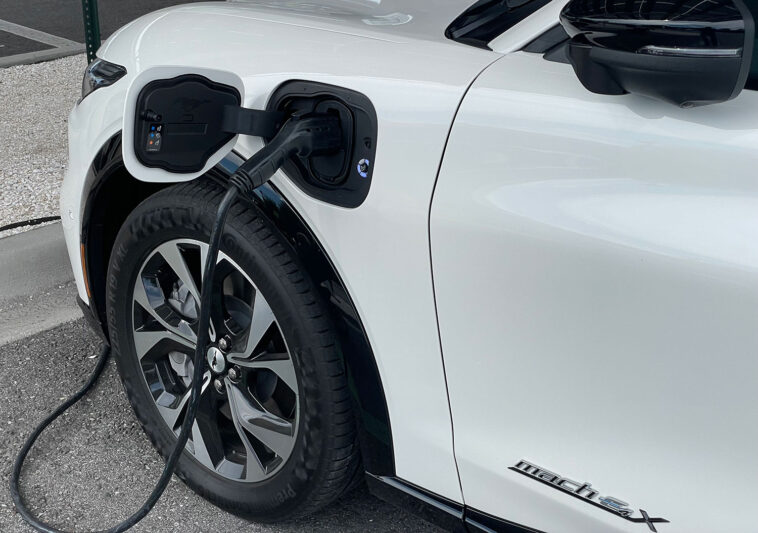Ought to electrical utilities be allowed to personal EV charging stations? In a free-market financial system, it’s typically thought of unhealthy for corporations that produce a services or products to additionally personal the distribution channels—that’s why liquor corporations don’t personal bars (within the US), and airways don’t personal airports. For an instance of the evils that may consequence when this precept is violated, contemplate social media corporations, which make their revenue from advert gross sales on “public” networks that they personal.
A proposed state regulation in Minnesota has introduced the difficulty of utility possession of public EV charging to the fore. HF 413 consists of a package deal of pro-EV measures, together with a $2,500 rebate for EV purchases and a requirement that authorities fleets procure electrified automobiles when sensible. One other fascinating merchandise: Any auto supplier that sells EVs will need to have at the very least one worker who has accomplished an EV coaching course.
One other provision of the proposed regulation would require utilities to file transportation electrification plans each three years, and it’s a single sentence on this part that has of us up in arms. These electrification plans could embrace “investments and incentives to facilitate…the deployment of…electrical automobiles [and] customer- and utility-owned electrical automobile charging stations.”
A nationwide advocacy group referred to as the Cost Forward Partnership, most of whose members symbolize retail chains, says that permitting ratepayer-supported utilities akin to Minnesota’s Xcel Power to personal public charging stations would discourage non-public corporations from getting into the sector.
Related laws has been enacted in New Mexico and Colorado, the place Xcel additionally operates. The utility has submitted a plan to the Minnesota Public Utilities Fee so as to add 730 high-speed charging stations throughout Minnesota between 2024 and 2026.
Utility possession of public EV chargers has “a chilling impact on anybody even pondering making non-public funding,” Ryan McKinnon, a spokesperson for the Cost Forward Partnership, instructed Utility Dive.
“As a result of they’re those…promoting the electrical energy, [utilities] don’t apply demand expenses to their very own stations,” McKinnon mentioned. (Demand expenses, charges that utilities levy on industrial customers at occasions of peak energy utilization, will be extraordinarily excessive, and so they’re the bane of DC quick charging operators.) “Consequently, they’re in a position to promote EV charging at a fee that no non-public entity would have the ability to compete with, as a result of it’s being backed by all of the ratepayers.”
This battle has been raging for just a few years in California. The state Public Utilities Fee not too long ago authorised a brand new state rebate program for EV charging investments, however specified that utilities couldn’t profit from the rebates. “Utilities is not going to be permitted to personal any of this infrastructure,” mentioned former CPUC Commissioner Clifford Rechtschaffen final November.
Few would (overtly) argue that state-sanctioned monopolies must be allowed to squeeze impartial corporations out of nascent markets. Nevertheless, as we’ve seen within the context of the California debates, some EV advocates consider that the highest precedence must be bringing extra public charging on-line as shortly as doable, and utilities are ready to do that with out worrying about making income in a low-margin enterprise.
In the meantime, oil corporations are muscling into the general public charging biz in an enormous manner, and we are able to’t assist however be aware that, whereas utilities have incentives to make public charging handy and low cost, Massive Oil has each incentive to do the alternative. Banning utilities from proudly owning chargers won’t result in the consequence that advocates of small enterprise need to see. One other commentary: the Cost Forward Partnership features a few EV charging suppliers and different trade stakeholders, however the overwhelming majority of its members seem like gasoline retailers.
Supply: Utility Dive


